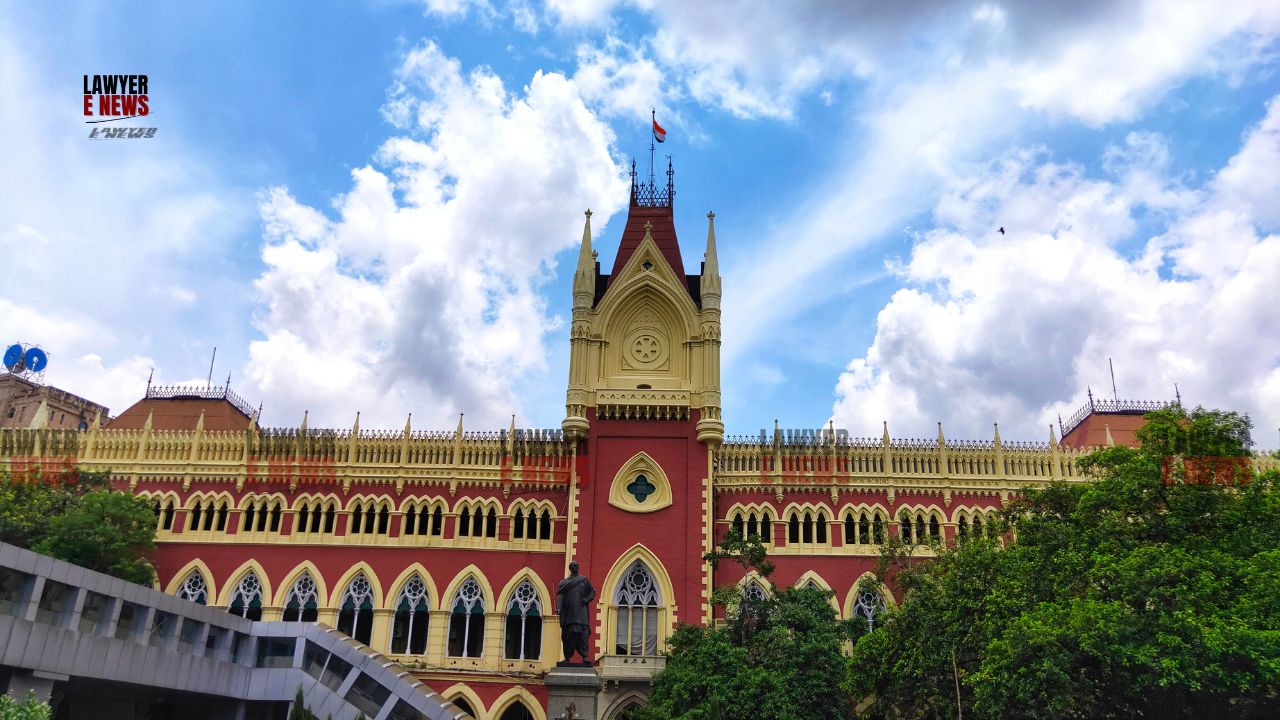-
by Admin
15 February 2026 5:01 PM



Under Mohammedan Law, There is No Presumption of Joint Ownership Like in Hindu Joint Family System – Calcutta High Court clarifying that Mohammedan Law does not recognize the presumption of joint ownership of property akin to Hindu joint family principles. The High Court set aside the concurrent findings of the lower courts, which had erroneously applied the concept of a "karta" to Mohammedan property disputes. The case was remanded for fresh adjudication.
Justice Dr. Ajoy Kumar Mukherjee observed, "The concept of ‘karta,’ which is integral to the Hindu joint family system, has no recognition under Mohammedan Law. In the absence of a presumption of joint ownership, each property must be assessed individually based on evidence of title and possession."
High Court Finds Lower Courts' Reliance on Local Commissioner's Report to Determine Ownership as Perversity
The court also emphasized that official records of rights, tax receipts, and registered deeds must be given weight unless rebutted by substantive evidence, ruling that the lower courts erred in relying on a Local Commissioner's report to assess possession and ownership. It held, "The purpose of local inspection is not to collect evidence of possession. The reliance on the commissioner's report, ignoring documentary evidence, amounts to a perverse finding."
In this second appeal, the appellants, Sk. Md. Yasin and others, challenged the concurrent findings of the Trial Court (28/11/1979) and First Appellate Court (03/04/1984), which dismissed their suit seeking a declaration of exclusive ownership over seven properties. Both lower courts had held the properties to be jointly owned by the parties, applying Hindu joint family principles. The High Court overturned these findings, reiterating that Mohammedan law does not recognize presumptions of joint ownership.
The High Court also criticized the dismissal of the suit under Section 34 of the Specific Relief Act, 1963, for the lack of a recovery of possession prayer, holding that possession by one co-sharer does not amount to ouster without evidence of hostile title.
The dispute arose between two brothers, Sk. Md. Yasin (plaintiff/appellant) and Sk. Asraf Ali (defendant/respondent), over seven properties listed in the plaint. The plaintiff claimed exclusive ownership of all the properties, stating that they were acquired through his personal funds, adverse possession, and gifts (heba) under Mohammedan Law. The defendant contested the claim, asserting joint ownership inherited from their father, Umed Ali, who allegedly acquired the properties.
Both the Trial Court and First Appellate Court ruled against the plaintiff, dismissing his claims of exclusive ownership and holding the properties to be jointly owned. Aggrieved, the plaintiff filed the second appeal.
The High Court noted that both lower courts applied Hindu joint family principles to determine ownership. Justice Mukherjee held, "Under Mohammedan Law, members of a family living in commensality do not form a joint family in the sense of Hindu law. There is no presumption of joint ownership."
This erroneous application of Hindu legal principles, coupled with the lower courts' failure to assess individual titles and possession, amounted to a perverse finding, warranting interference in the second appeal.
The appellant’s claim to certain properties through oral heba (gift) and adverse possession was rejected by the lower courts due to procedural technicalities and lack of registration. The High Court clarified that gifts under Mohammedan law need not be in writing or registered but require three elements: declaration, acceptance, and delivery of possession.
The Court observed, "The lower courts failed to apply settled principles of Mohammedan law to assess the validity of the oral heba (gift) and incorrectly dismissed the claim without evaluating compliance with these essentials."
The appellant presented registered deeds, records of rights (CS & RS ROR), and tax receipts to establish ownership. The lower courts disregarded these documents, relying instead on the Local Commissioner's report. The High Court emphasized, "Official records carry a presumption of correctness unless rebutted by substantive evidence. The reliance on a commissioner's report, in the absence of field notes, was improper and perverse."
The lower courts dismissed the suit under Section 34 of the Specific Relief Act for lack of a recovery of possession prayer, relying on the Local Commissioner's report, which indicated the defendant’s possession of some properties. The High Court clarified that possession by one co-sharer does not constitute ouster unless hostile title is proved.
Justice Mukherjee stated, "In disputes between co-sharers, absence of a recovery of possession prayer cannot bar relief unless ouster is pleaded and proved. Relief could have been molded under Order VII Rule 7 of the CPC."
Applicability of Mohammedan Law: The court ruled that the lower courts erred in applying Hindu joint family principles and misconstrued the evidence by assuming joint ownership without individual assessment of title.
Perversity in Findings: The High Court found that the lower courts ignored material evidence, misapplied legal principles, and relied on inadmissible evidence like the Local Commissioner's report to establish possession.
Remand for Fresh Adjudication: The judgment and decrees of the Trial Court and First Appellate Court were set aside. The case was remanded to the Trial Court for fresh adjudication within six months, with directions to consider the principles of Mohammedan law and evaluate the evidence on merits.
The Calcutta High Court's decision in Sk. Md. Yasin & Others vs. Sk. Asraf Ali underscores the importance of applying the correct legal framework to property disputes. The judgment reaffirms that Mohammedan law does not recognize presumptions of joint ownership or the concept of a "karta." It also highlights the need to prioritize documentary evidence like records of rights and tax receipts over extraneous reports like those of local commissioners.
Date of Decision: December 10, 2024
